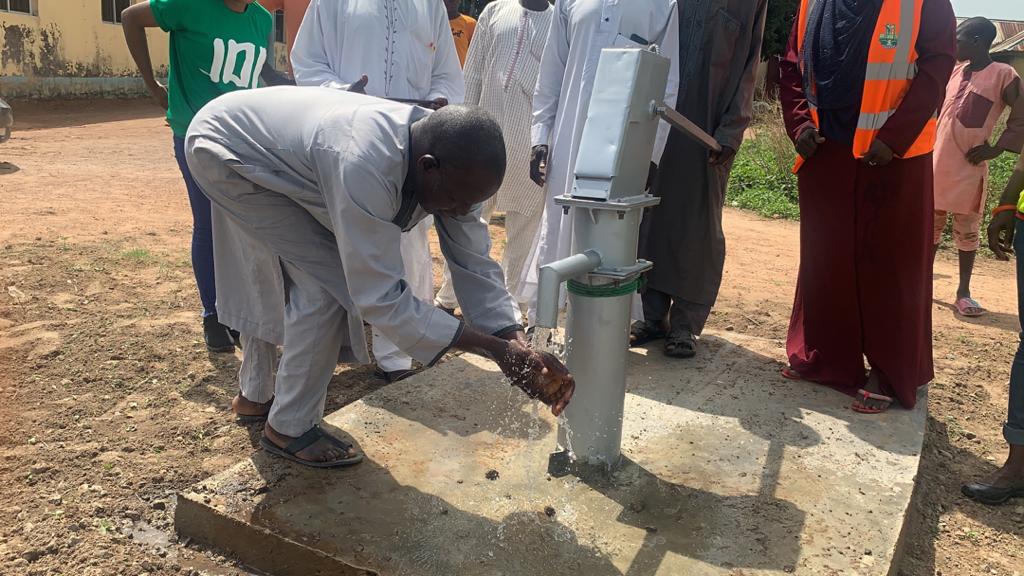“Thousands have lived without love, not one without water” — W.H. Auden.
Iwa is a lively rural community of about 600 inhabitants in Gurara Local Government Area of Niger State. It is just about 112 kilometres from Minna, the state’s capital and like most rural communities in North-Central Nigeria, the indigenes are predominantly farmers. Iwa is one of the many rural communities across Nigeria that lacks access to quality water and is in dire need of proper sanitation.
Poor access to quality water, sanitation and hygiene (WASH) in Nigeria remains a major contributing factor to reduced quality of life across much of the population. Only about 26.5% of Nigerians have access to improved drinking water sources and sanitation facilities. Contaminated drinking water and poor sanitary settings increase vulnerability to water-borne diseases like diarrhoea, typhoid and cholera. Seventy-three percent of the diarrheal and enteric disease burden in Nigeria is associated with poor access to WASH and is disproportionately borne by poorer children. Frequent episodes of poor sanitation and hygiene related ill-health in children, contribute to malnutrition and school absenteeism.
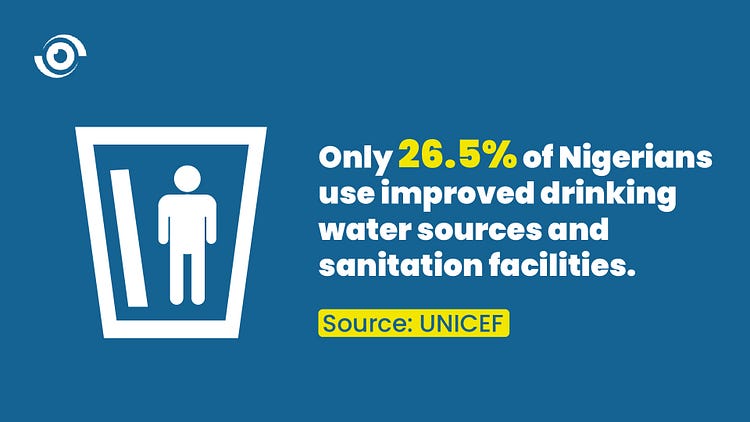
In recommending sustainable and scalable solutions for the provision of effective WASH commodities and services, UNICEF proposed strengthening tailored community approaches to total sanitation including Community-Led Total Sanitation (CLTS) in rural, peri-urban and riverine settings. CLTS is a rural behaviour change approach which helps communities understand the negative effects of poor sanitation and empowers them to collectively create WASH solutions that benefit their community.
H2OForCommunities: Creating Tailored Water Solutions for Local Communities
Jela’s Development Initiatives (JDI), a not-for-profit organisation that works to provide equitable access to potable water and healthcare in underserved communities, adopt this approach for its ‘H2OForCommunities’ intervention. Through this initiative, JDI collaborates with stakeholders to set up potable water sources in rural communities to contribute to meeting Sustainable Development Goal 6. The goal of the‘H2OForCommunities’ project is to provide water to communities, by drilling at least one borehole in four communities every year.
The Iwa Community project was the first of its kind. A baseline survey of the community’s needs revealed that their existing WASH infrastructure was completely rundown. The Iwa community clinic, a Primary Health Care (PHC) facility which serves the community and neighbouring villages, had a borehole but it had broken down five years before and was never repaired. The JDI team interviewed the PHC staff and women who had given birth in the clinic and discovered that, because of the lack of water in the community, when women gave birth at the clinic, there was poor access to clean safe water for the mother and newborn. There was another borehole in the community market but that had also been faulty for a number of years.
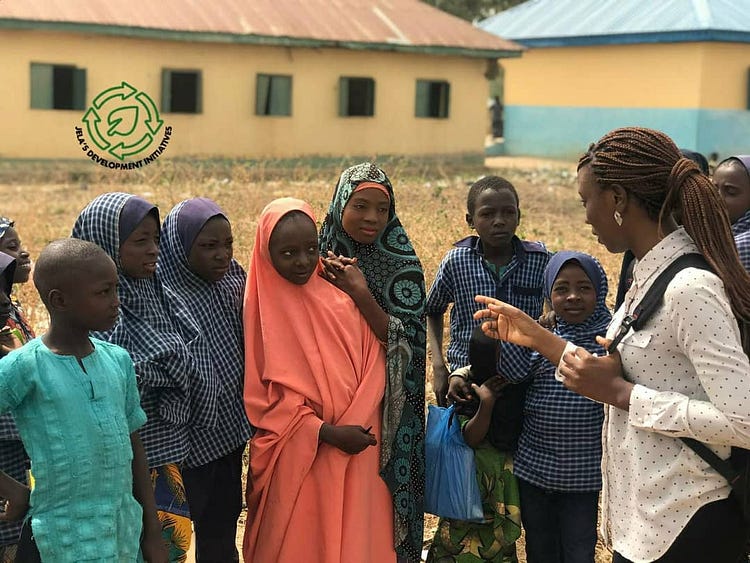
At Iwa Primary School, with a student population of 421, made up of children from Iwa and neighbouring communities, the story was no different. The team found a dilapidated pit latrine that had been abandoned. A chat with the pupils and teachers revealed that the school had no access to water and toilet facilities.
A few compounds in the community have wells, but the water sourced from the wells was unsafe for drinking or household use. The wells were the only source of water accessible to the community.
It Takes a Village — Partnerships for Progress
JDI had initially planned to install a new borehole in the community, but these findings forced them to rethink that plan. To provide a solution that would effectively solve the community’s WASH needs, they decided to repair the boreholes at the PHC and the market. Since the school did not have its own source of water supply, they also planned to draw water from the borehole at the market to the school by installing connecting pipes. Lastly, they planned to build toilets for the school.
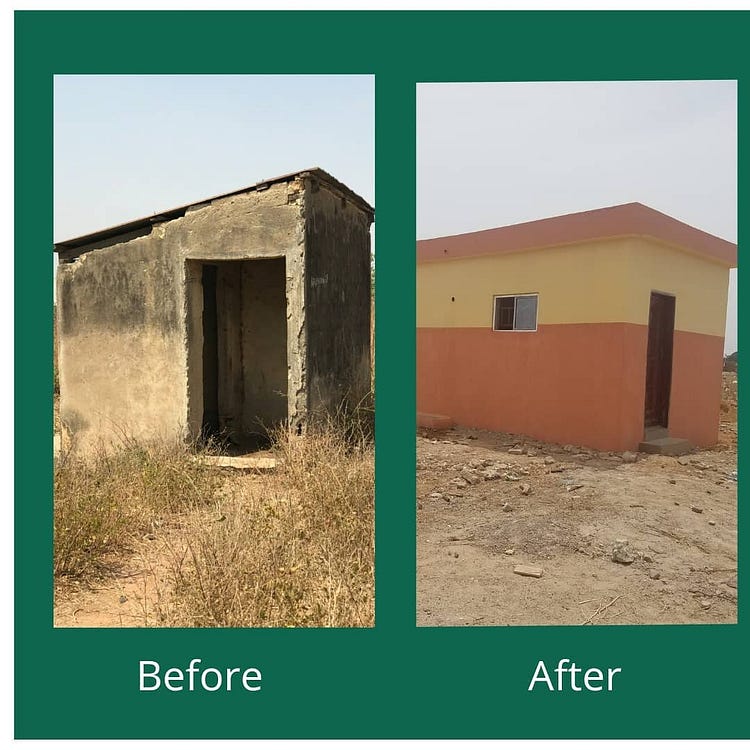
The total cost of the proposed work was 3 million naira. To raise the funds, JDI launched a #H2OForCommunities social media campaign using a short documentary that highlighted the challenges in the community and the effect the lack of water resources had on living standards and the health of the residents, particularly women and children, as a backdrop for the cause.
The campaign raised eight hundred thousand naira and Mainstream Foundation, the Corporate Social Responsibility outfit of Mainstream Energy Solutions Limited supported with 1.9 million naira. JDI then commissioned the borehole at the clinic in partnership with Just Fix It Synergy Nigeria (JFISN), who supported the project with the remaining funds needed.
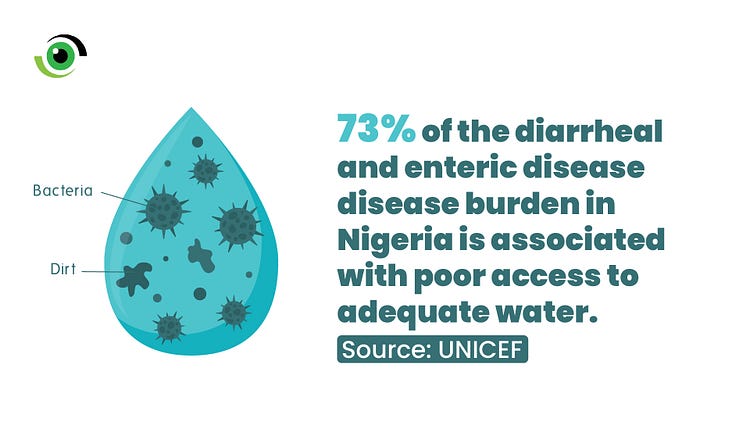
To encourage community ownership of the project, JDI also worked with the State, local government and community leaders. Prior to the implementation of the project, the Niger State Local Education Authority (LEA) approved the plans for the proposed work in the school. The Chief of Iwa Community also had to grant them permission before repairs could be carried out on the borehole in the market and pipes installed to draw water to the school.
JDI’s technical team, volunteers and the community members worked closely together to carry out the work and once it was completed, the keys to the Iwa Primary School toilet were handed to the Chief and the community vigilante group. The vigilante group enforces the law and ensures that public facilities are used well, so they will be responsible for ensuring that the toilets are kept clean and in good condition. The keys to the clinic borehole were handed to the In-charge of the facility.
Speaking on the collaboration that made it possible to execute the project, Mayflora Ejedegba, one of JDI’s key volunteers who worked in Iwa said, “For me, the Iwa project proved that with consistency, teamwork and support from people, you can pull off any major project and that applies to our daily lives as well”
JDI also partnered with the Centre for School Health Education and Environmental Hygiene (CSHEEH) who provided sanitation equipment like bins, mops, dust pans, buckets, toilet rolls and air fresheners among others, that would last at least six months, to the Primary School. The Parent-Teacher Association (PTA) was encouraged to establish a system for continuous replenishment of these materials to avoid stock-out. CSHEEH also trained the pupils on hygiene and sanitation during the commissioning of the toilet.
For Angela Omeiza Ochu-Baiye, Founder/CEO, JDI, starting and executing the project was a big win, “As a mother, to see children the same age as mine have access to proper toilet facilities made me happy that JDI was making a huge impact in the lives of 421 children. Also, knowing that mothers giving birth in the Iwa Community Clinic now have access to clean water from the borehole we fixed made the mother in me deeply grateful for the opportunity to be a part of this project”, she said.
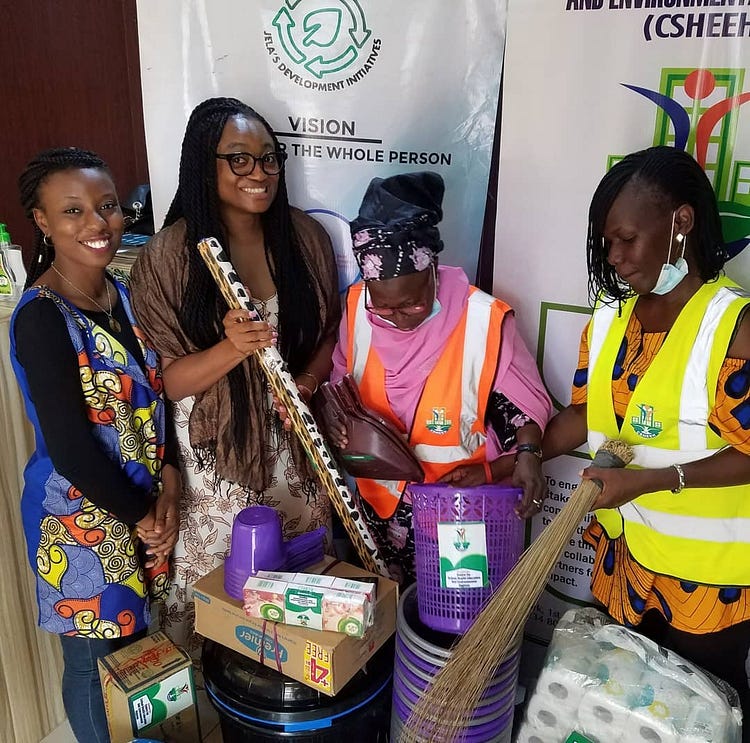
Accelerating WASH in Nigeria: Recommendations for Action
Iwa has gone from being a community that severely lacked WASH facilities to being fitted with water and toilet facilities that have helped improve their water and sanitation practices. It is expected that with this intervention, the quality of healthcare improves at the Iwa Community Clinic, and the pupils at Iwa Primary School are now provided with a conducive learning environment.
#H2OForCommunities aims to provide equitable access to potable water and healthcare in underserved communities and riding on the success of the intervention to Iwa community, this year, JDI plans to replicate this solution in at least four more communities across the country.
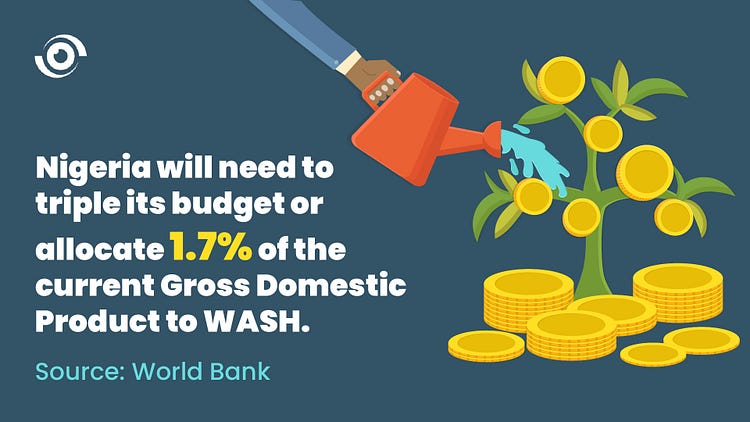
Achieving Sustainable Development Goal 6 by 2030 requires extraordinary effort and the World Bank estimates that Nigeria will need to triple its budget or allocate 1.7% of the current Gross Domestic Product to WASH.
Insecurity remains a challenge across the country and Iwa Community is not exempt from this problem. Security personnel must proffer measures to reduce insecurity in local communities to ensure that WASH interventions are easily carried to underserved communities like Iwa.
The consequences of inadequate access to water and sanitation services and poor hygiene practices disproportionately affect disadvantaged populations. Ensuring sustainability of water services in rural communities will produce positive developmental, social, economic and environmental outcomes that improve the well-being of the people.


